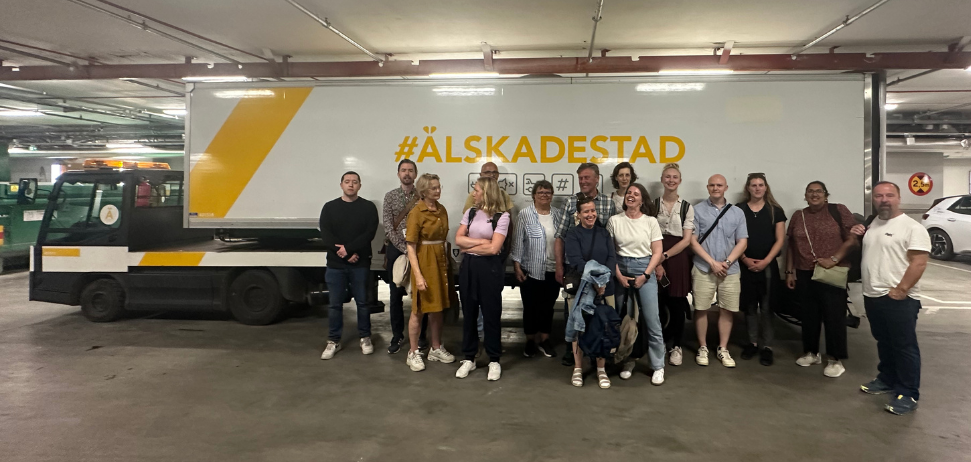In an effort to improve urban logistics and sustainability, the City of Stockholm has partnered with Menigo Foodservice AB to pilot off-peak delivery of food supplies to schools, preschools, and care homes. This initiative, set for Q1 and Q2 of 2024, aims to test and verify the feasibility and benefits of scheduling deliveries outside traditional hours.

Time frame
Q3 2023 – Q4 2024
Problem statement
Traditional delivery schedules between 08.00 and 14.00 contribute to traffic congestion, inefficiencies, and higher transportation costs. This window also poses challenges for maintaining delivery reliability and food safety, while impeding the city's efforts to reduce its carbon footprint. There is a need to explore alternative delivery times to enhance efficiency and sustainability.
Objectives
- Transport efficiency: Reduce traffic congestion and fuel consumption by shifting to off-peak hours
- Economic viability: Lower transportation costs and optimise resource use
- Delivery reliability: Ensure timely and consistent deliveries outside regular business hours
- Food safety: Maintain stringent temperature controls for perishable items
- Scalability: Develop recommendations for broader adoption of off-peak deliveries in future procurement processes
Challenges
- Logistical coordination: Ensuring smooth access to school properties during off-peak hours
- Temperature control: Maintaining food safety standards during transport outside normal operating times
- Stakeholder buy-in: Securing support from all stakeholders, including school staff and delivery personnel
- Infrastructure readiness: Adapting existing infrastructure to accommodate off-peak deliveries
Approach
The pilot embraces sustainability principles by optimising resource use and minimising waste. By scheduling deliveries outside peak hours, The City of Stockholm aims to reduce emissions, lower energy consumption, and enhance the overall efficiency of its food supply chain. This approach aligns with the city’s broader sustainability and net-zero goals.
Sectors involved
- ICT software and systems: Leveraging technology for efficient route planning and delivery tracking
- Climate and environmental technology: Utilising electric trucks to reduce carbon emissions
- Municipal Services: Coordinating with city services for logistical support
- Transport: Engaging with transportation providers to ensure efficient and reliable deliveries
Process and progress
The project began with organisational planning, and needs assessment in the fall of 2023. The pilot involves ten schools of varying sizes, serving between 600 and 5000 meals daily, to ensure a diverse sample for analysis. Key activities include:
- Planning and coordination: Establishing clear protocols for off-peak deliveries
- Implementation: Conducting deliveries during evenings and nights
- Monitoring: Tracking transport efficiency, delivery reliability, and food safety metrics
- Evaluation: Assessing economic viability and overall impact
Expected outcomes
- Environmental impact: A significant reduction in greenhouse gas emissions from transportation
- Economic benefits: Lower transportation costs and more efficient use of electric trucks
- Operational resilience: Enhanced supply chain resilience and flexibility
- Service improvement: Reduced daytime disruptions and timely meal preparation for schools and care homes
Conclusion
Stockholm’s off-peak delivery pilot represents a pioneering effort to integrate sustainable principles into urban logistics. By shifting deliveries to off-peak hours, the city aims to achieve substantial environmental, economic, and social benefits. The insights gained from this pilot will inform future procurement processes, potentially transforming how urban food supply chains operate. As the project progresses, it will provide a scalable model for other municipalities seeking innovative and sustainable logistics solutions. NAV Assistive Technology Centre Agder has also adapted this thinking to their project and is testing this out. This shows that learning across borders and collaboration has a positive effect.
